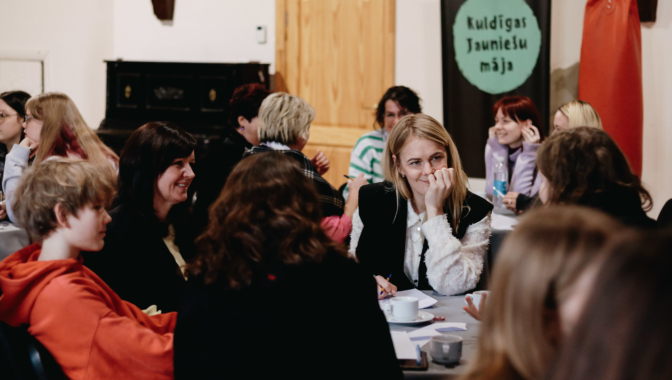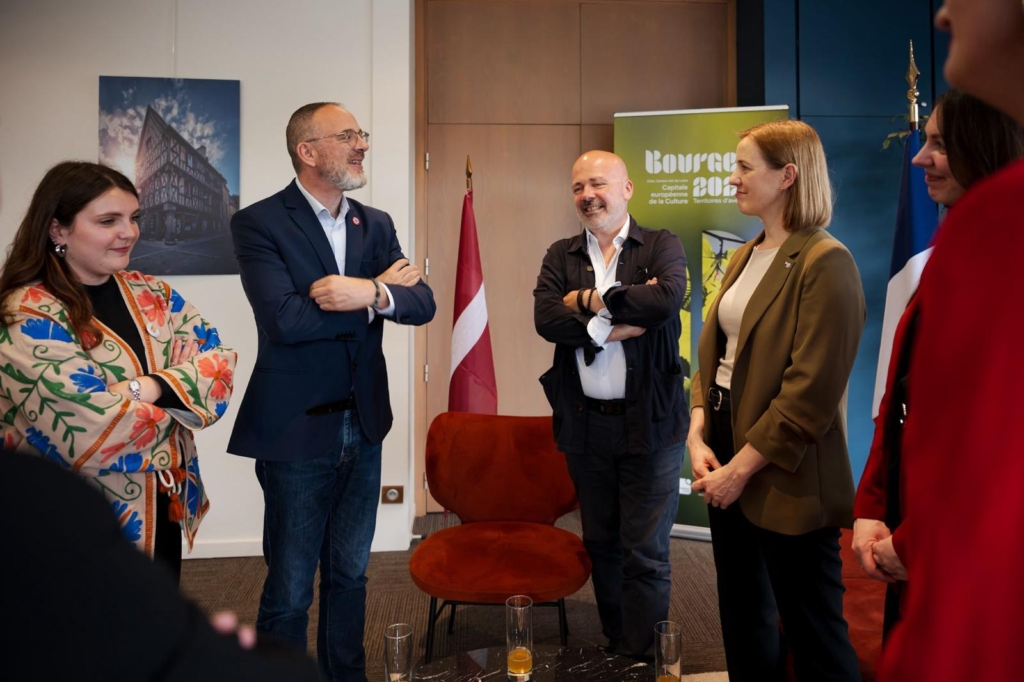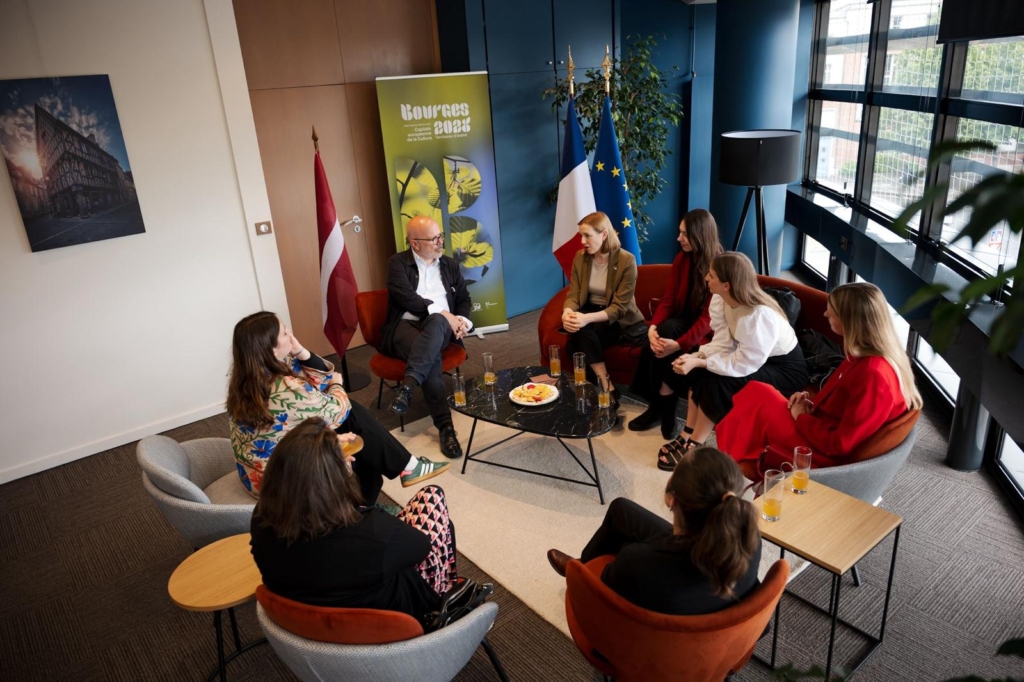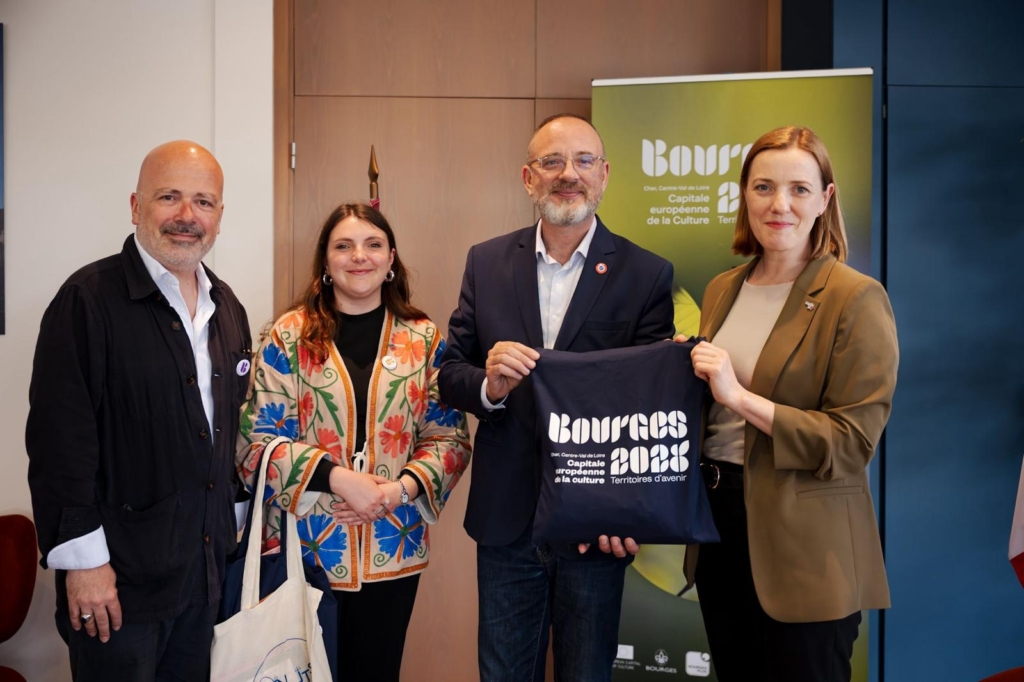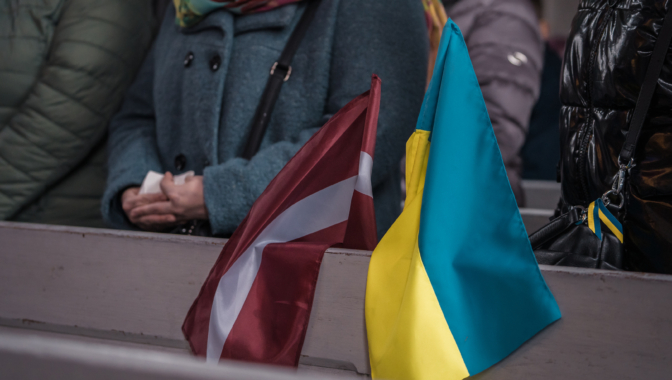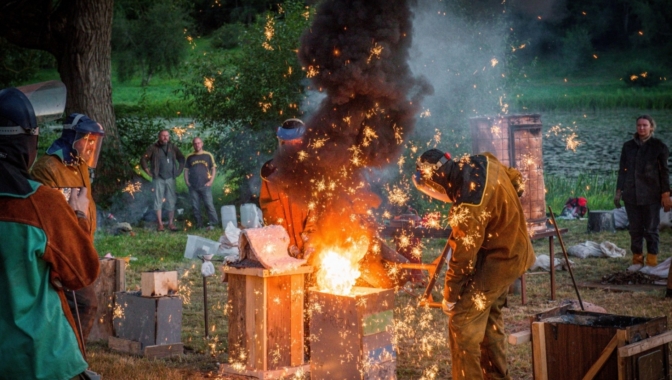At the beginning of June our team visited Bourges 2028 — the French city that will take over the European Capital of Culture title from Liepāja at the end of 2027.
The European Capitals of Culture network offers an excellent platform for international cooperation, providing young talents with masterclasses and residencies, enabling local cultural operators to organize exchange visits, and enriching cultural programs with international guest artists. This fosters diverse artistic experiences that showcase current trends, authentic cultural offerings, and innovative art forms.
As we plan joint projects with Bourges 2028 in the near future, getting to know this city is an important first step:
- Medieval French capital
In the early 15th century, Bourges became the de facto capital of France for over a decade, when King Charles VII made it his royal court during the Hundred Years’ War while Paris was under English control.
- Center of French intellectual life in the 15th century
King Louis XI founded the University of Bourges in 1463, which became a key center for law, humanities, and theology studies, attracting leading scholars like Jacques Cujas in the 16th century.
- Rich Gothic and Renaissance architecture
Bourges preserves many historic buildings from the 13th to 15th centuries, including cathedrals and private mansions, reflecting its past economic and cultural prominence.
- Saint-Étienne Cathedral, a UNESCO World Heritage Site
Built between the 12th and 13th centuries, this early French Gothic cathedral is renowned for its stylistic unity and architectural excellence.
- Palais Jacques-Cœur – symbol of wealth and power
This luxurious 15th-century mansion was built by Jacques Cœur, a wealthy merchant and royal financial advisor, and is one of Europe’s finest examples of civil Gothic architecture.
- The Bourges Marshes – nature in the city center
Les Marais de Bourges are historic wetlands and gardens covering about 135 hectares near the old town, representing a unique coexistence of nature, cultural heritage, and urban life.
- Famous for the Printemps de Bourges festival
Since 1977, this annual music and arts festival draws thousands of visitors and artists from France and beyond.
During this week’s working sessions, we developed concrete ideas for collaborative projects in civic engagement, bio-art, gastronomy, visual arts, music, and raising the international profile of European Capitals of Culture.
Through collaborations like these, we not only build international partnerships in the arts, but also reinforce the core values that Europe stands for – democracy, solidarity and equality. In today’s political context, this mission feels more vital than ever.
We look forward to the future with great enthusiasm!
Thank you to the Bourges 2028 team for the warm welcome and valuable experience — see you soon for close cooperation!
